You were probably told from a young age that if you’re a loyal, hard worker, your efforts will surely be rewarded. You’ll be given promotions, raises and the respect of your employer. And you’ll never have to worry about job security! Unfortunately, however, that does not reflect the current job market. And the days of working for the same company for decades are long gone, as companies have proven time and time again that they don’t value their loyal workers.
One woman who learned this lesson the hard way recently reached out to Reddit to share her story. Below, you’ll find all of the details about why she refuses to train her replacement, as well as some of the replies invested readers shared.
This woman has always been told that her company couldn’t afford to give her a raise

Image credits: Getty Images / Unsplash (not the actual photo)
So she was shocked to find out that her replacement would be earning significantly more

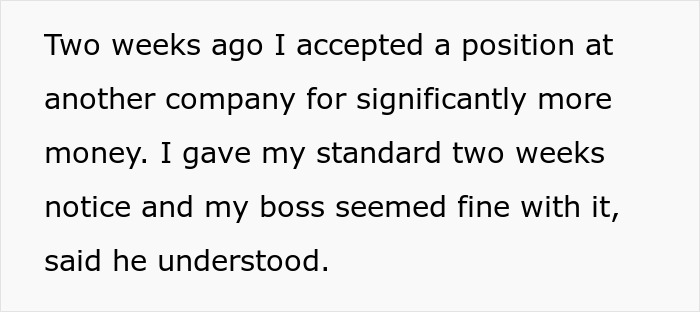


Image credits: Raymond Petrik / Unsplash (not the actual photo)

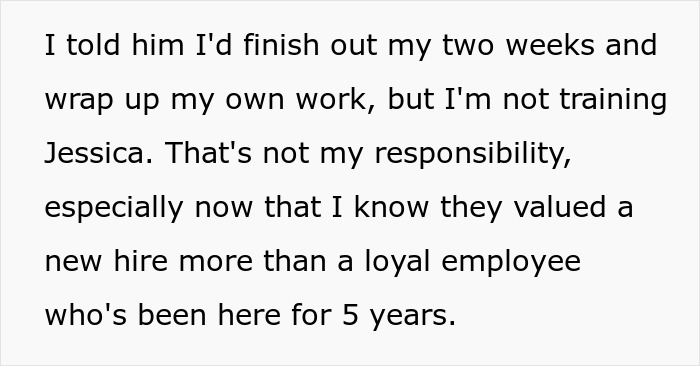

Image credits: diana.grytsku / freepik (not the actual photo)

Image credits: Guscioni-Mibida
The fastest way to get a salary increase is often to change companies
The idea of paying a new hire more than someone who’s been at the company for years sounds absurd. Shouldn’t the seasoned veteran be rewarded for their dedication? Well, unfortunately, companies don’t always see it that way. There’s a reason why many experts recommend changing jobs every three to five years.
Raises aren’t always guaranteed, even if you’re loyal to a company for many years. In fact, a Monster survey found that over a quarter of workers haven’t received a raise in over a year, and 18% of workers polled had never received a raise. Meanwhile, Resume Worded reports that job switchers tend to see between a 5% and 15% salary increase when they start a new position.
So why are new hires being paid more? Well, Bloomberry says there are a few explanations. First of all, your employer might actually want you to leave. Some Big Tech companies even fire the bottom 10% of their workforce every year to make room for more skilled employees. By refusing to give you a raise, your company might be nudging you towards the door.
Another potential explanation is that the company might have a capped budget for salary raises. But their hiring budget might be even larger. At the same time, HR often doesn’t realize the long-term impacts that come along with paying new hires more than the people they’re replacing. It might make sense on paper, but the loss of experience and skill can come back to bite them.
There’s also a common misconception that experience collected at other companies is somehow more valuable than experience garnered in house. New hires are attractive to companies because they bring unique perspectives to the table, but that doesn’t necessarily mean that they’ll be a good fit.

Image credits: Tahir osman / Unsplash (not the actual photo)
But paying new hires more than veterans isn’t always a smart business move
While employers are prioritizing attracting new talent, Harvard Business Review warns that paying replacements more is a great way to get top performers to resign. When workers realize that they’re not being valued, they’ll start seeking out new opportunities. After all, nobody wants to miss out on a higher salary if they might be able to find one elsewhere.
Of course, this can also take a huge toll on morale within a company. Veterans might be bitter about new hires earning more than them, and as more tenured employees begin to jump ship, the company loses out on valuable expertise. Plus, if everyone in the office is a relatively new hire, they might not have the necessary skills and knowledge to keep the company afloat.
There are steps companies can take to prevent these issues from arising, though. Hppy recommends carrying out regular payroll audits to ensure that employees are being paid fairly. It’s also a good idea to have open conversations about pay structure.
Employees should understand exactly why they’re earning their current salary. Meanwhile, adjustments should be made when necessary. And workers should feel comfortable expressing any concerns they may have about their wages. It’s better to address these issues than to suffer in silence, especially if someone with 5 years less experience is out-earning you.
We would love to hear your thoughts on this situation in the comments below, pandas. Do you think this woman made the right call by refusing to train her replacement? Then, if you’re looking for another Bored Panda article discussing similar workplace drama, look no further than right here.
Many readers supported the author’s choice













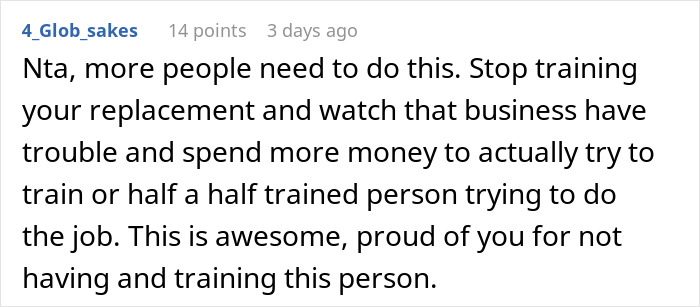



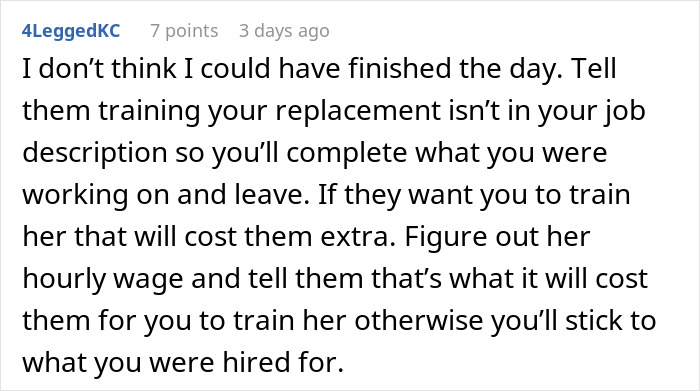



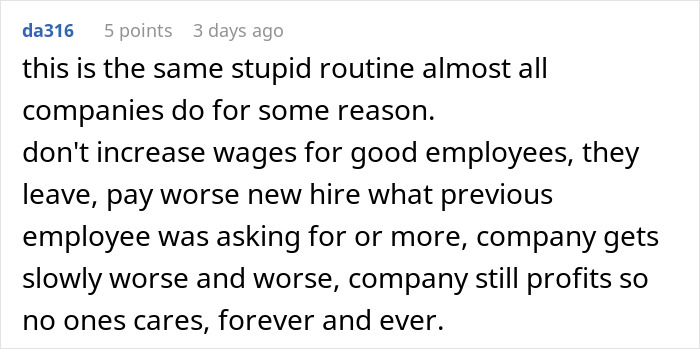
However, some warned that it’s not a great idea to burn bridges when leaving a company
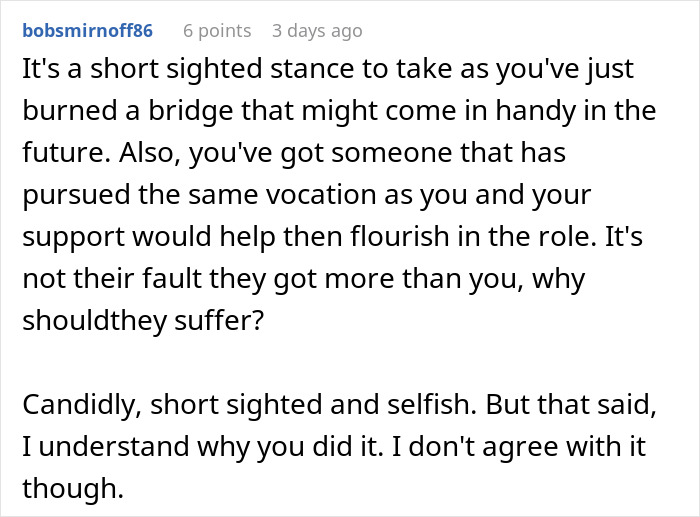











from Bored Panda https://ift.tt/G6PNAB9
via IFTTT source site : boredpanda
